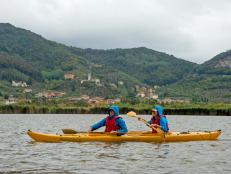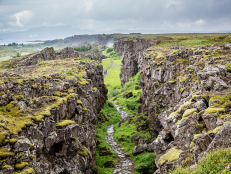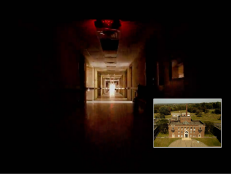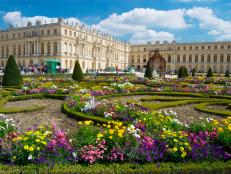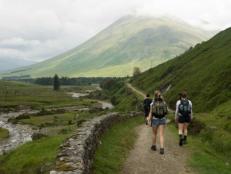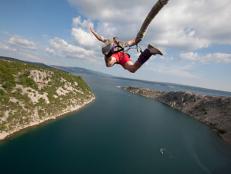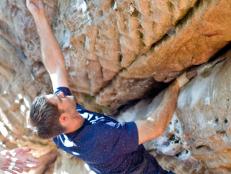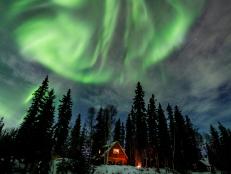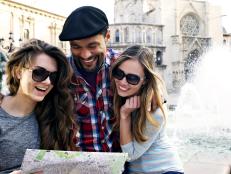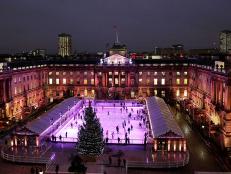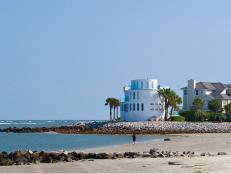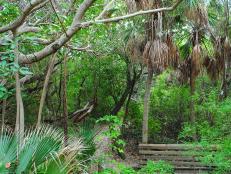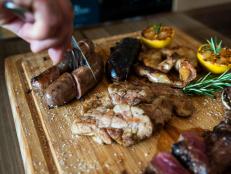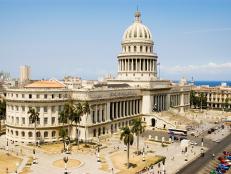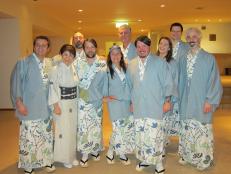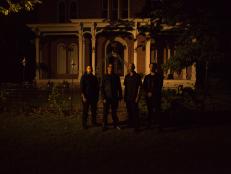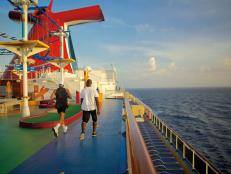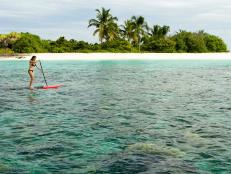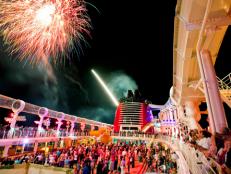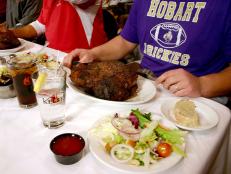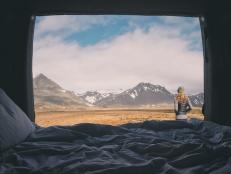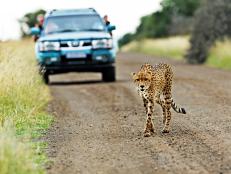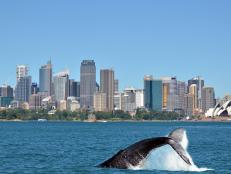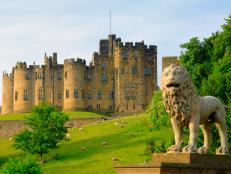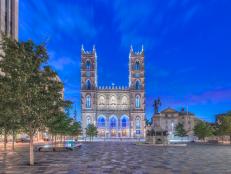Germany’s Great Outdoor Adventures
Germany offers as much in the way of great outdoor adventures as it does in big city thrills. Go skiing in the Bavarian Alps in the southeastern part of the country or settle in for water sports and a wellness routine on the rugged islands of the Baltic and North Sea. Here’s where to go for unforgettable nature experiences in Germany’s great outdoors.
Sleep In a Sky Tent

Waldseilgarten-Höllschlucht
Extreme camping takes on new meaning when you find yourself sleeping inside a tent suspended from a tree at the adventure resort of Waldseilgarten Hollschlucht, located in the mountain-fringed” village of Pfronten in Germany’s Allgau region (part of Bavaria).
The tents are actually called portaledges and are similar to what rock climbers sleep in during long climbs. To reach these tents you climb a series of ropes and cables built into the tree, then shimmy out across the branch and climb in. Your athleticism will be rewarded with spectacular views of the surrounding Bavarian Alps and a suspended sleeping space, with a thin mat and a duvet.
Ski in Oberstdorf

Thinkstock
The Bavarian Alps may not have the scope and size of their Austrian and Swiss counterparts, but you can still indulge in some serious schussing in Germany’s rugged southeastern corner. With some 80 miles of slopes, the ski resort of Oberstdorf is home to Germany’s longest downhill slope (over 4.5 miles).
And the Fellhorn and Kanzelwand ski areas here make up the largest linked ski terrain on the north side of the Alps. You can even make it a binational ski day by skiing into Austria’s Kleinwalsertal ski area, about an hour's skiing from Oberstdorf.
Hit the Beach in Sylt

iStock
You may not think of beaches when you think of Germany, but the country’s rugged North Sea island of Sylt has some of Europe’s most beautiful (if cold-watered) dune-backed sands. The island lies 5 miles off Germany’s northwest coast, with easy 3-hour rail connections from Hamburg to Sylt’s main town, Westerland.
Germany’s answer to the Hamptons, Sylt beckons the country’s rich and famous with its sprawling coastal mansions and glitzy oceanfront restaurants like Sansibar. There’s a down-to-earth side to the island, too, especially in its dedicated windsurfing scene. Every September, the world’s largest windsurfing competition -- the PWA Windsurf World Cup -- takes place in Westerland.
Experience Rügen’s Chalk Cliffs

Thinkstock
Germany’s largest island, Rügen, is located off the country’s north coast in the Baltic Sea and is easily accessed by a train or car ride of less than 4 hours from Berlin.
There are long beaches to stroll here, lighthouses to climb for views of the rugged coastline and many wellness-oriented hotels (the Cliff Hotel has an excellent wellness area) fronting the beach, where you can relax with spa and sauna facilities. The biggest natural lure are the island’s spectacular chalk cliffs -- white-as-snow rock formations that rise nearly 400 feet out of the Baltic and tower over the beach, creating otherworldly backdrops for a swim in the cool waters.
Go Sledding in Wallberg

Thinkstock
Come winter, “Schlittenfahren" or "Rodeln” -- aka sledding -- is a favorite German pastime. Any place there’s a snow-covered hill, Germans eagerly attack it by sled, be it a traditional wooden toboggan or something altogether more modern and sleek. All sled runs are not created equal, though.
Head to Wallberg mountain near the town of Rottach-Egern in southern Bavaria to experience Germany’s longest natural sled run, which stretches for more than 4 miles and has a cable car conveniently located at the end to keep you looping on continuous runs (you can rent sleds on-site).
Log Rafting on the Isar River

Getty Images
From mid-May to mid-September, hop a ride on a traditional log raft built in a century-old style (think, logs laid horizontal and bound together) for a leisurely float down the Isar River. Munich’s main waterway, the Isar has its origins in Austria’s Tyrol region and its waters are crystal clear.
Organized tours bring you by bus about 30 minutes south of Munich to the town of Wolfratshausen. Then you’ll set out for the 8-hour trip back to a take-out area just south of Munich. The tour includes a stop in a riverside biergarten midway through the day for a traditional meal of Schweinebraten mit Knödel (roast pork with dumplings). A captain dressed in an authentic, albeit kitsch lederhosen outfit and live Bavarian music aboard the raft ensure the joy is definitely in the journey.
